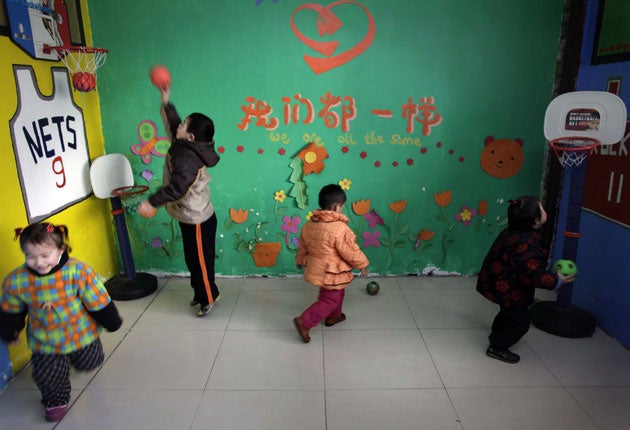Too little, too late as China’s Aids death rate explodes
Suppression of health information has helped spread of killer disease

Your support helps us to tell the story
From reproductive rights to climate change to Big Tech, The Independent is on the ground when the story is developing. Whether it's investigating the financials of Elon Musk's pro-Trump PAC or producing our latest documentary, 'The A Word', which shines a light on the American women fighting for reproductive rights, we know how important it is to parse out the facts from the messaging.
At such a critical moment in US history, we need reporters on the ground. Your donation allows us to keep sending journalists to speak to both sides of the story.
The Independent is trusted by Americans across the entire political spectrum. And unlike many other quality news outlets, we choose not to lock Americans out of our reporting and analysis with paywalls. We believe quality journalism should be available to everyone, paid for by those who can afford it.
Your support makes all the difference.Officials in Beijiing have admitted for the first time that the country’s number one killer infectious disease is no longer tuberculosis, and not even rabies. It is Aids: almost 7,000 people in China died as a result of HIV/Aids in the first nine months of last year.
China’s Ministry of Health says that until three years ago, fewer than 8,000 people altogether had died from Aids after contracting the human immunodeficiency virus (HIV). Now the death toll is at least five times that figure.
Until very recently in China, HIV/Aids was viewed as a disease that affected foreigners, and rumours persisted that HIV could be passed through shaking hands or sharing chopsticks. But there have been many efforts in recent years to overcome China’s traditionally conservative attitudes to sex. And while official information about Aids had long been suppressed, the government is now serious about educating and helping the segments of society most at risk, especially sex workers and, for the first time, homosexual men.
The Health Ministry confirmed 264,302 accumulated cases of HIV/Aids by the end of September last year. Of those cases, 34,864 had died in those nine months. In China, the disease is mainly transmitted sexually, but the virus initially spread because of unsanitary blood plasma-buying schemes and tainted transfusions in hospitals. The first reported case of Aids in China was in 1982. Three years later, the government announced the first death from the disease. Yet concerns persist that local officials are under-reporting the figures. The United Nations’ health and Aids bodies, for example, estimate that, by the end of 2007, 700,000 people in China were HIV positive. Local officials are thought still to be fearful of recriminations if their localities buck national trends. In the old days, sexually transmitted diseases were officially eradicated – the Communist Party’s grip on personal behaviour, as well as the gathering of statistics, was absolute.
But it took many years to start to undo the long era of suspicion. In 2003, Premier Wen Jiabao became China’s first senior leader to shake hands publicly with an Aids patient; not long after, President Hu Jintao was photographed embracing Aids patients.
China’s health authorities needed to translate this new openness into meaningful policies, such as the 2002 campaign encouraging 100 per cent condom use. But such initiatives were still concentrated to the cities. So, in the following year, the “four frees, one care” initiative emerged for all virus carriers and Aids patients, and it included work in rural areas. The four frees are: free HIV testing; free counselling and treatment for carriers in rural regions; free medication for all pregnant HIV carriers; and free education for Aids orphans. The “care” is for impoverished Aids patients and the elimination of Aids-related discrimination.
In February last year, the country’s first nationwide programme opened to control the spread of Aids among male homosexuals.
Data is sketchy, but there are between five million and 10 million gay men in China. Because of overwhelming social stigma about homosexuality, gay men are often married and risk passing HIV on to their wives.
Join our commenting forum
Join thought-provoking conversations, follow other Independent readers and see their replies
Comments